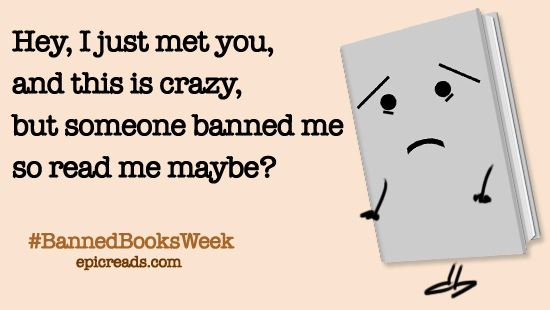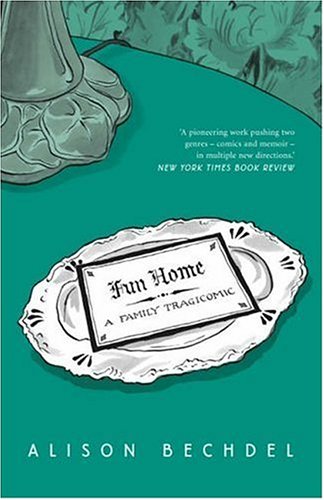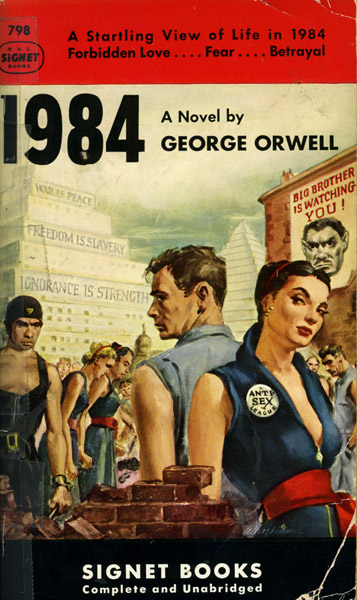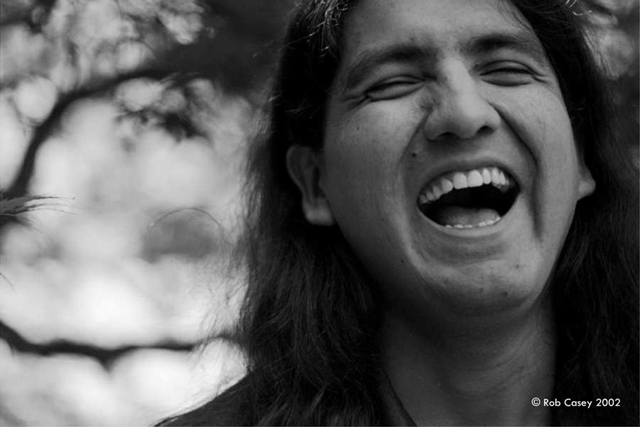Welcome to Banned Books Week! Banned Books Week is like Christmas for me: it allows me to queer my reading like I queer my gender. The American Library Association receives reports every year of attempts across the country to ban books from schools and libraries. Challenged books mean that someone is attempting to have the materials removed from said school or library, actual banning means the removal of those materials. In other words, banning a book means the triumph of censorship. And as a person that others are constantly trying to censor, I say hell to the no. In 2011, there were at least 326 challenges to reading material in the United States. The ALA estimates that more than 70% of these challenges go unreported, which means the number of actual attempts at censorship in 2011 is probably closer to 554.
Here are a few ways to celebrate Banned Books Week. Party hard with some inappropriate reading!
+ Participate in the Virtual Read Out. Head on over to this YouTube channel and extol the virtues of the freedom to read. Here are the criteria for submission, and here’s where you can send your stuff.
+ Read a banned or challenged book! There are so many lists to give us inspiration, such as this timeline from the ALA (which features the Perks of Being a Wallflower,) this list of challenged classics (which includes half the things I was assigned to read in high school,) and the list of top ten challenged books by year (including the Hunger Games in 2011 and Tango Makes Three in 2010, challenged specifically for homosexuality.)
+ If novels aren’t your style, try graphic novels instead. The Comic Book Legal Defense Fund has a list of the most frequently challenged graphic novels. Anyone surprised that Alison Bechdel’s Fun Home is on there? Anyone? They also happen to have a feature on the death of Tereska Torrès, the author of America’s first lesbian pulp novel, so they’re a pretty great resource in my book.
+ Follow some literary tumblrs! Malaika did all the leg work for us here back in August. My personal favorite is Book Riot.
+ Get some free challenged books! A journalist at Money Talks News compiled a list of free downloads of banned books, so if you’ve just been waiting for the right moment to read 1984 or Lolita, now is your money-saving chance.
+ Spend a day on Goodreads instead of Facebook. And better yet, spend the day reading toward your yearly books-read goal.
+
+ Read about controversial authors! Here’s something about Salman Rushdie after the Ayatollah’s death warrant, in the New Yorker last week. Oh, and here’s a whole section of Judy Blume’s website dedicated to censorship. And here’s an interview with Sherman Alexie! And of course, who doesn’t want to listen to Alison Bechdel speak in New York on October 6th and again on October 15th?







If 326 challenges represent the reported ~30%, then the total would be more like 1087 I think? Idk, I am not mathy.
This sounds right and I am kinda mathy.
BANNED BOOKS WEEK IS THE MOST WONDERFUL TIME OF THE YEAR.
banned books are sexy
scratch that, books are sexy. unless they’re Twilight, in which case they are distinctly un-sexy.
I like that you have a list of different things we can do! This is pretty cool.
The book I’m reading this week is not on any banned lists yet but it just came out, I feel like since it involves government conspiracies and the main character is bi and in a relationship with a girl, it probably will be by next year.
Hey, if you want another literary tumblr, I’m just going to plug my own: fuckyeahlesbianliterature.tumblr.com
Seconded. It’s brilliant.
I like to treat banned book lists as suggestions for books I must read. If I ever succeed in publishing my work, I’d be ecstatic if it made a challenged/banned book list.
I took a banned books class in college. It was by far and away one of the best classes I’ve ever taken. For me, the banned and challenged books alway turn out to be the best.
The inclusion of books that were banned for “racism” irks me. I’d say that’s a fairly good reason to ban a book. Unless those were all bullshit claims of “anti-white racism” or something.
This implies that a) any claim of racism should be considered accurate or b) that entire books can be deemed racist because of a few passages. That’s like assuming any book that contains a few sexually explict passages should be considered obscene.
Most attempts at censorship are made with claims of good cause. They want to protect young people from something that might harm them. They want to stop adults from doing bad things. Yet in one way or another it’s still a political act. A form of thought control. In this case an attempt to improve race relations be “hidding” some harsh realities.
Just who is supposed to decide outside of the home, classroom, and workplace setting what is good/bad reading for the “vulnerable” crowd, whether the sensitive subject be sex, race, religion, or politics. All very personal as well as national concerns and all of which have been known to overlap in the controversys over supposed “corrupting messages.” If one claim that any book which degrads women or blacks should be considered hate speech, than someone else could the same claim aganst a book that attack the views of a religious group or government leaders. Even if that book was meant to challege policies by the religion or government that the writer deems oppressive to women or blacks.
Even if they only ones making the call of what books to ban were minorities (a very unlikley scenerio onto itself), there would surely be disagreement over what was the right/wrong way to represent race. Especially if were only talking about one “particular” race. Many would disagree for example, that your dismisal of any claim of “anti-white” attitudes in book as “bullshit.”
Certainly many children are not yet propared to deal with many adult themes, words, and mindsets fond in book ranging from modern favoriates to classics of the ancients. Education must be carefull about how to present material to students, especially in diverse classes. But calls for a ban or even expunging of sensitive materials does more to confuse than to enlighten.